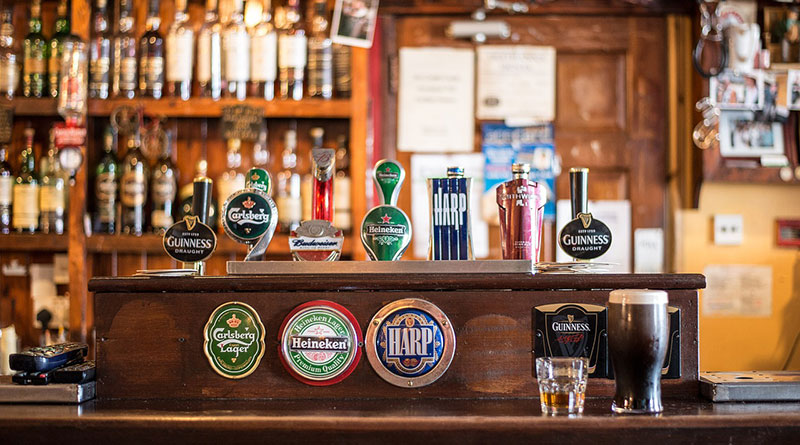Hospitality Sector Sees Increase in “Distressed Businesses”

Bars and restaurants are major drivers behind a rise in the number of businesses “in critical financial distress” according to the latest Begbies Traynor “Red Flag Alert” report, which has provided a snapshot of British corporate health for the past 15 years, reveals the financial strain continuing to be faced by thousands of British businesses.
The research revealed the number of companies rated as being in “critical financial distress” continued to rise, jumping by more than a third in Q2 2022 compared with the same period last year to 1,957, and edging up 3% compared to Q1 2022.
Businesses continue to be impacted by rising inflation in the ‘real economy’ which is far exceeding the official rate of more than 9%. Taken together with higher labour, material and energy prices, and combined with faltering consumer and business confidence, companies are facing an exceptionally difficult economic backdrop.
Adding further pressure to many companies is the repayment of the Government-backed Covid support loans granted to help them survive the pandemic.
Evidence of this financial distress comes in the form of County Court Judgement (CCJ) data, arguably an early warning sign of future insolvency, which revealed 46,235 rulings in the first six months of 2022, up 5% on 2022the first quarter, as creditors tried to recover debts. This compares with 59,042 CCJs during the entirety of 2021, with this year’s figure to date driven higher as the backlog in the courts clears and debts are pursued.
Sectors with the highest number of critically distressed businesses;
• Construction
• Support Services
• Real Estate
• General Retailers
• Automotive
• Manufacturing
• Bars & Restaurants
• Financial Services
• Food & Drug Retailers
• Industrial Transportation
Julie Palmer, partner at Begbies Traynor, said
the data on companies in a “critical” financial distress painted a worrying picture:
“Having emerged from the pandemic, many companies were hoping for an economic boom but that has simply fizzled out, as supply chain issues and the invasion of Ukraine have taken their toll by driving up raw material and energy costs and reducing both business and consumer confidence.
“We are now in a very high inflationary environment that’s piling pressure on businesses that were already weakened by the shock of the pandemic.
“Sectors most exposed to discretionary consumer spending – bars and restaurants and general retailers – are feeling the pain most. Hit by staff shortages due to the latest spike in Covid rates, their customers are now reining in spending on anything that’s not necessary, ahead of the expected hike in the energy price cap, and we are seeing clear signs of this in this Red Flag data.”
“I am also particularly concerned for those SMEs who operate in energy-intensive sectors, such as manufacturing, as some could simply become unviable. Without the benefit of an energy price cap, business energy tariffs have at least trebled, and for for many it will be much worse.”
Ms Palmer added that support from Government to prop up businesses through the pandemic could also be artificially lowering the number of businesses in critical distress.
She pointed to reports that the number of small businesses that had failed to meet repayment terms for the Bounce Back Loan Scheme (BBLS) was close to 200,000, almost double the most recent official data.
Ms Palmer said: “There are firms that are struggling to work out what they will do. Do they try to battle on or just throw in the towel as they realise that in this new world, they just won’t be able to repay the taxpayer-funded help they got?
“Many are fighting on, but the environment is only going to get worse, not better, at least until later next year or 2024. I fear that it may be a troublesome autumn as businesses which have struggled for so long are finally overwhelmed.”
However, there was some good news. The number of businesses rated as being in “significant distress” was flat on the previous quarter at 582,452, and down 11 per cent on the same three months in 2021.
Ric Traynor, executive chairman of Begbies Traynor, commented:
“The combination of macro-economic risks is now taking its toll on UK businesses, as evidenced by this latest Red Flag Alert data.
“With inflation nearing 10%, and showing little sign of abating, there can be no doubt that things are going to get worse for UK businesses before they get better. This, combined with a deteriorating geo-political landscape, is likely to have serious consequences for the UK economy.
“Rising insolvency rates, combined with our own evidence from speaking to the directors of distressed companies, highlight the impact of rising costs on businesses. The very same directors, who benefited from Government-backed Covid support loans to get them through the pandemic, are now telling us that they are simply unable to repay these debts, plus they are having to deal with rising wage demands and higher input costs.
“Additionally, the anticipated double-digit rise in business rates next April will heap more pressure on to vulnerable businesses, despite some benefiting from the recent revaluation.
“With this latest research showing almost 600,000 companies in significant financial distress, we would expect the weakest to enter insolvency over the next two years.”
